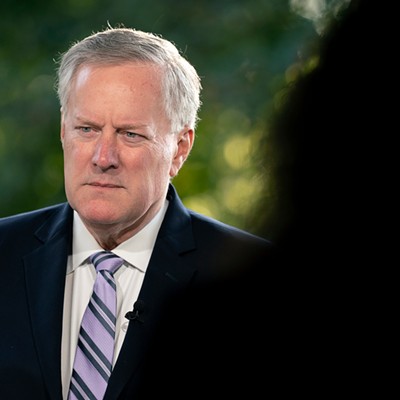Powell warns of prolonged economic pain without help as Trump calls off stimulus talks
[
{
"name": "Broadstreet - Instory",
"insertPoint": "5",
"component": "25846487",
"requiredCountToDisplay": "5"
},{
"name": "Broadstreet - Instory",
"insertPoint": "10",
"component": "25846487",
"requiredCountToDisplay": "10"
},{
"name": "Broadstreet - Instory",
"insertPoint": "15",
"component": "25846487",
"requiredCountToDisplay": "15"
},{
"name": "Broadstreet - Instory",
"insertPoint": "20",
"component": "25846487",
"requiredCountToDisplay": "20"
}
]
By Jeanna Smialek
The New York Times Company
WASHINGTON — Jerome Powell, the Federal Reserve chair, delivered a blunt message to Congress and the White House on Tuesday: Faced with a once-in-a-century pandemic that has inflicted economic pain on millions of households, go big.
Hours later, President Donald Trump delivered his own message: Forget it.
In a series of conflicting tweets, the president said the economy was “doing very well” and coming back “in record numbers,” suggesting that no additional help was needed while also saying that he would wait until after the election to “pass a major Stimulus Bill that focuses on hardworking Americans and Small Business.”
While the chances of Congress reaching a deal on another package were already slim, Trump’s directive sent markets swooning as the reality sank in that the economic recovery, which is slowing, would not get another jolt before Nov. 3. The S&P 500 fell more than 1% soon after Trump’s tweet, after having been higher in the moments before.
In deciding to forgo any more immediate relief, Trump could be setting the economy up for the type of painful and “tragic” outcome that Powell warned about Tuesday. The Fed chair, who has increasingly called for more government help, said policymakers should err on the side of injecting too much money into the economy rather than too little.
“Too little support would lead to a weak recovery, creating unnecessary hardship for households and businesses,” Powell said in remarks before the National Association for Business Economics.
“Over time, household insolvencies and business bankruptcies would rise, harming the productive capacity of the economy and holding back wage growth,” he said. “By contrast, the risks of overdoing it seem, for now, to be smaller.”
Nearly seven months into the pandemic, millions of Americans remain unemployed as the coronavirus keeps many service industries operating below capacity. The unemployment rate has fallen more rapidly than many economists expected, dropping to 7.9% in September, and consumer spending is holding up. But Powell again highlighted that the economy’s resilience owed substantially to strong government assistance that has been provided to households and businesses.
But that assistance has since run dry, putting what Powell called an “incomplete recovery” at risk without the government pumping more money into the economy.
The New York Times Company
WASHINGTON — Jerome Powell, the Federal Reserve chair, delivered a blunt message to Congress and the White House on Tuesday: Faced with a once-in-a-century pandemic that has inflicted economic pain on millions of households, go big.
Hours later, President Donald Trump delivered his own message: Forget it.
In a series of conflicting tweets, the president said the economy was “doing very well” and coming back “in record numbers,” suggesting that no additional help was needed while also saying that he would wait until after the election to “pass a major Stimulus Bill that focuses on hardworking Americans and Small Business.”
While the chances of Congress reaching a deal on another package were already slim, Trump’s directive sent markets swooning as the reality sank in that the economic recovery, which is slowing, would not get another jolt before Nov. 3. The S&P 500 fell more than 1% soon after Trump’s tweet, after having been higher in the moments before.
In deciding to forgo any more immediate relief, Trump could be setting the economy up for the type of painful and “tragic” outcome that Powell warned about Tuesday. The Fed chair, who has increasingly called for more government help, said policymakers should err on the side of injecting too much money into the economy rather than too little.
“Too little support would lead to a weak recovery, creating unnecessary hardship for households and businesses,” Powell said in remarks before the National Association for Business Economics.
“Over time, household insolvencies and business bankruptcies would rise, harming the productive capacity of the economy and holding back wage growth,” he said. “By contrast, the risks of overdoing it seem, for now, to be smaller.”
Nearly seven months into the pandemic, millions of Americans remain unemployed as the coronavirus keeps many service industries operating below capacity. The unemployment rate has fallen more rapidly than many economists expected, dropping to 7.9% in September, and consumer spending is holding up. But Powell again highlighted that the economy’s resilience owed substantially to strong government assistance that has been provided to households and businesses.
But that assistance has since run dry, putting what Powell called an “incomplete recovery” at risk without the government pumping more money into the economy.















